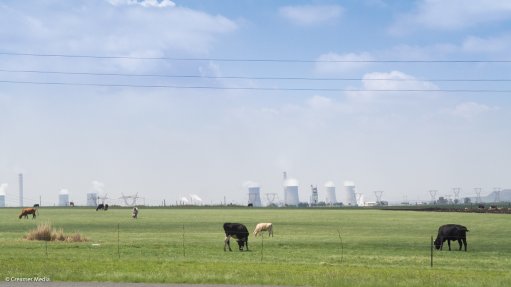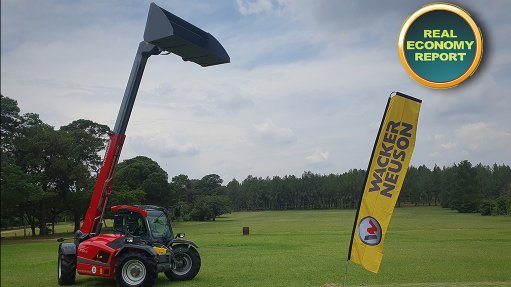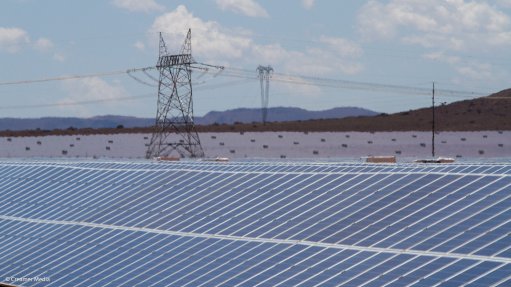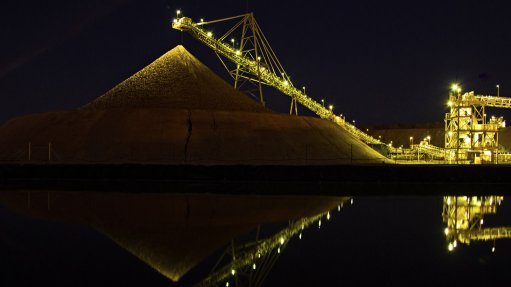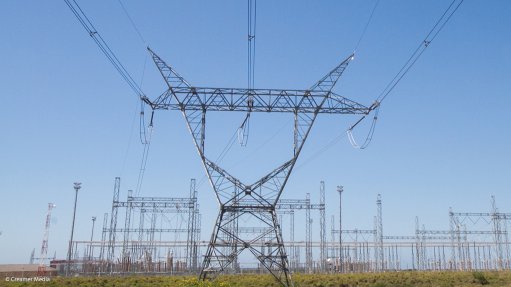Thirty semi-finalists announced for Afri-Plastics Challenge to reduce marine plastics
Thirty semi-finalists have been announced for the Promoting Change strand of the Afri-Plastics Challenge that aims to reduce marine plastics in sub-Saharan African countries by developing and scaling innovative solutions to plastic mismanagement, innovation foundation Nesta Challenges says.
The semi-finalists are developing campaigns, schemes, tools and other creative interventions that will change the behaviour of individuals and communities around plastic waste in sub-Saharan Africa, as well as contribute to the empowerment of women and girls, the foundation says.
“The projects presented by the semi-finalists have provided an opportunity to promote behavioural change and save oceans from pollution, as researchers of a study published in the journal Science in 2020 estimated that plastics entering the ocean could triple to nearly 29-million tons by 2040, if current production and consumption remains unchecked,” Nesta Challenges highlights.
“Africa’s entrepreneurs and innovators are at the forefront of creating the solutions needed to scale plastics recycling and reduce the volumes of plastics entering the value chain, but their efforts will be for nothing without a groundswell of support from communities to make the circular economy for plastics a well-functioning reality,” says chemicals multinational Dow Ghana country manager and Afri-Plastics Challenge judge Adwoa Coleman.
“The semi-finalists announced today are using diverse approaches to engage communities, and particularly women and girls who are so integral to the plastic ecosystem in Africa, to drive the change needed to overcome the unfolding tragedy of unbridled plastic pollution on the continent.”
The 30 semi-finalists for Strand 3 of the Afri-Plastics Challenge will receive capacity-building support to further develop their engagement strategies, alongside a grant of £5 000 each.
Further, 15 finalists will be selected in June to implement their ideas with support from additional capacity-building support and a grant of £50 000 each. Finally, three winners to be announced in March 2023 will receive £250 000 each.
The semi-finalists are from Botswana, Burkina Faso, Cameroon, Ethiopia, Ghana, Kenya, Nigeria, Rwanda, Senegal, South Africa, Tanzania, Uganda, Zambia and Zimbabwe.
SOUTH AFRICAN SEMI-FINALISTS
The semi-finalists from South Africa include behavioural software company Regenize, which developed Remali 2.0 – a virtual currency and behaviour-changing mobile app focused on simplifying, encouraging and teaching citizens how to live a zero-waste lifestyle (ZWL).
Remali is earned by performing ZWL activities, attending events or learning about them. Each week, participants need to perform these actions to meet their target to earn Remali.
Additionally, Soapbox South Africa’s Captain Fanplastic initiative uses storytelling as the core of education about plastic.
“The programme is designed for scalability in that we are able to offer an opportunity to use girls and women as leaders, facilitators and trainers in much-needed education in the communities,” Soapbox states.
Further, Moonshot Dynamics’ Paycycle uses a point-of-sale-based digital reward system targeted at eliminating single-use plastic bags and promoting non-plastic reusable shopping bags that are also recyclable and ecofriendly.
A range of mobile apps customised to shoppers of various economic classes enables Paycycle to track consumers’ shopping bag use over partnering shops, and reward consumers with loyalty points for buying and reusing reusable shopping bags.
Meanwhile, the Vhembe Biosphere Reserve’s Trash to Treasure initiative aims to work with schools, tribal communities and women waste pickers to create awareness among selected schools by encouraging waste recycling at schools.
All the collected waste material will be taken to a local company Dziphathutshedzo Green Surface that is using plastics to make paving bricks, plastic tiles and other plastic products, such as rulers and pencil cases.
The United Nations Environment Programme 5.2 established an Intergovernmental Negotiating Committee to forge an international legally binding agreement to end plastic pollution.
The resolution calls for a treaty that promotes sustainable alternatives to plastics and fosters international collaboration on access to technology, capacity building and scientific and technical cooperation.
This legally binding global agreement on plastic pollution was the most significant environmental multilateral deal since the Paris Accord. Efforts made by a number of governments across sub-Saharan Africa have given these countries a head start in combating plastic waste, Nesta Challenges says.
Article Enquiry
Email Article
Save Article
Feedback
To advertise email advertising@creamermedia.co.za or click here
Comments
Press Office
Announcements
What's On
Subscribe to improve your user experience...
Option 1 (equivalent of R125 a month):
Receive a weekly copy of Creamer Media's Engineering News & Mining Weekly magazine
(print copy for those in South Africa and e-magazine for those outside of South Africa)
Receive daily email newsletters
Access to full search results
Access archive of magazine back copies
Access to Projects in Progress
Access to ONE Research Report of your choice in PDF format
Option 2 (equivalent of R375 a month):
All benefits from Option 1
PLUS
Access to Creamer Media's Research Channel Africa for ALL Research Reports, in PDF format, on various industrial and mining sectors
including Electricity; Water; Energy Transition; Hydrogen; Roads, Rail and Ports; Coal; Gold; Platinum; Battery Metals; etc.
Already a subscriber?
Forgotten your password?
Receive weekly copy of Creamer Media's Engineering News & Mining Weekly magazine (print copy for those in South Africa and e-magazine for those outside of South Africa)
➕
Recieve daily email newsletters
➕
Access to full search results
➕
Access archive of magazine back copies
➕
Access to Projects in Progress
➕
Access to ONE Research Report of your choice in PDF format
RESEARCH CHANNEL AFRICA
R4500 (equivalent of R375 a month)
SUBSCRIBEAll benefits from Option 1
➕
Access to Creamer Media's Research Channel Africa for ALL Research Reports on various industrial and mining sectors, in PDF format, including on:
Electricity
➕
Water
➕
Energy Transition
➕
Hydrogen
➕
Roads, Rail and Ports
➕
Coal
➕
Gold
➕
Platinum
➕
Battery Metals
➕
etc.
Receive all benefits from Option 1 or Option 2 delivered to numerous people at your company
➕
Multiple User names and Passwords for simultaneous log-ins
➕
Intranet integration access to all in your organisation








